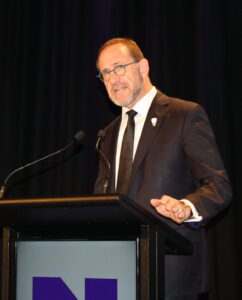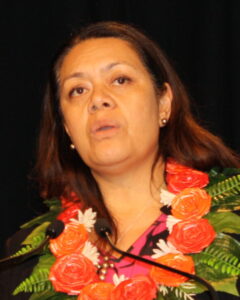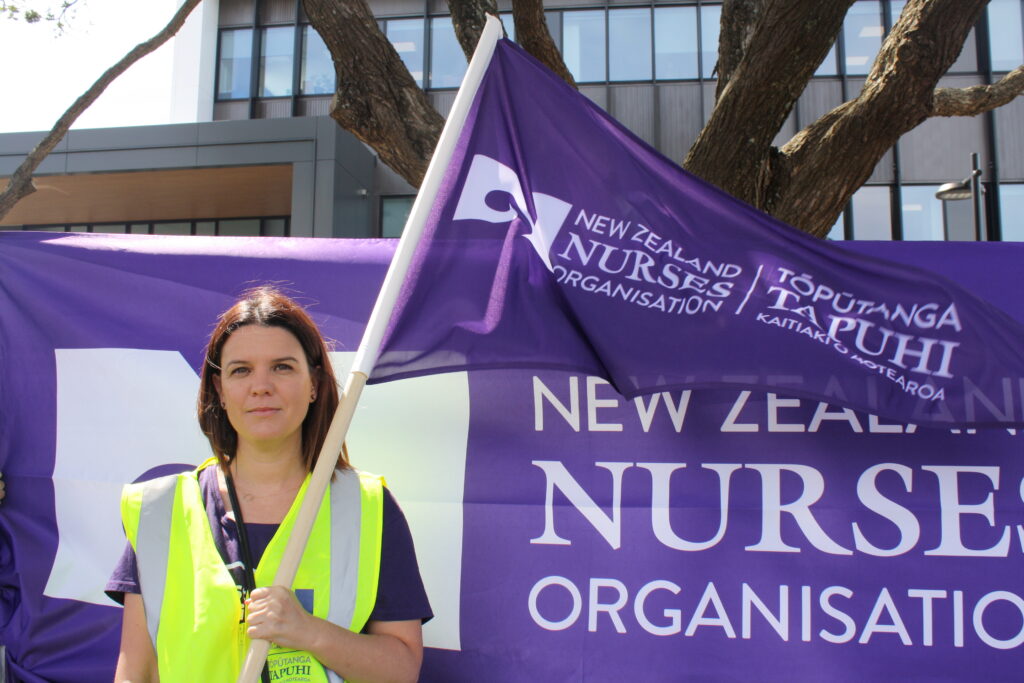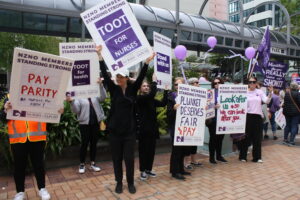Health Minister Andrew Little says he’s confident a funding solution to provide pay parity for nurses working outside of Te Whatu Ora will be found by the end of the year.
About 4200 primary health care and Whānau Awhina Plunket nurses walked off the job for four hours last week in protest over stalled pay talks.
GP employers say they want to pay nursing staff the same as Te Whatu Ora nurses but were not funded enough to do this.
Little was quizzed about government funding for primary health care and Whānau Awhina Plunket nurses’ wages by media on the day of the strike.
This week his office provided Kaitiaki with a transcript of an interview, in which he said the Government needed to do something about pay parity for all primary health and aged care nurses.

“I’m confident we will have something for them soon.”
When pushed about when this would happen, he said “well before” the end of the year.
“A lot of work has been done and we’re very close.”
A Te Whatu Ora spokesperson told Kaitiaki the agency had provided GPs with an additional $106 million in “new base funding” in the past two years, of which “$87 million was available for workforce pressures”.
“This is more than the anticipated $7.7 million cost of implementing the new Primary Care Nursing MECA.”
The spokesperson said it was up to GPs and unions to “negotiate the appropriate flow-through to staff wages, terms and conditions”.
At a post-board media briefing, Te Whatu Ora chief executive Margie Apa said the funding provided to GPs was “based on costings that we were told by PHOs representing practices that they needed to implement the [PHC Nurses] MECA”.

NZNO chief executive Paul Goulter said the issue needed to be dealt with urgently and any funding solution for pay parity must be transparent.
“We are saying very strongly there needs to be a transparent and auditable passage of that funding into our members’ pockets.
“I suspect that is one of the issues the minister is trying to work out. We would expect to be engaged on that, just as the employers would.”
He said the NZNO wanted to see a “an immediate sizeable investment” as a first step on a pathway to pay parity, with “contractual certainty about the rest of it following”.
NZNO industrial adviser Danielle Davies said there had been no further negotiations with employers over the collective since the strike last Thursday.
” . . . but nothing can [happen] because they don’t have a different position in which to meaningfully negotiate on the basis of. That requires additional [Government] funding.”

Angus Chambers Riccarton Clinic owner and vice chair of GenPro – a national body representing general practice owners – said the Government had failed to negotiate with GPs over the annual increase in capitation funding, which he said was woefully insufficient to cover pay parity for nursing staff.
“Yes there’s [nursing] wage costs, but there’s doctors’ wage costs, admin wage costs, and it doesn’t account for increasing [health] complexity.”
The funding also didn’t account for increasing costs due to the transfer of services from secondary to primary care, “which happens all the time”, Chambers said.

“So I have [a nurse] who takes the sutures out of someone’s knee after a knee replacement because the hospital can’t be bothered doing it themselves.”
Chambers said GenPro would be open to ring-fenced funding for wage increases.
“I think we’d be open to anything that allows us to pay our nurses better, we all want that.”


